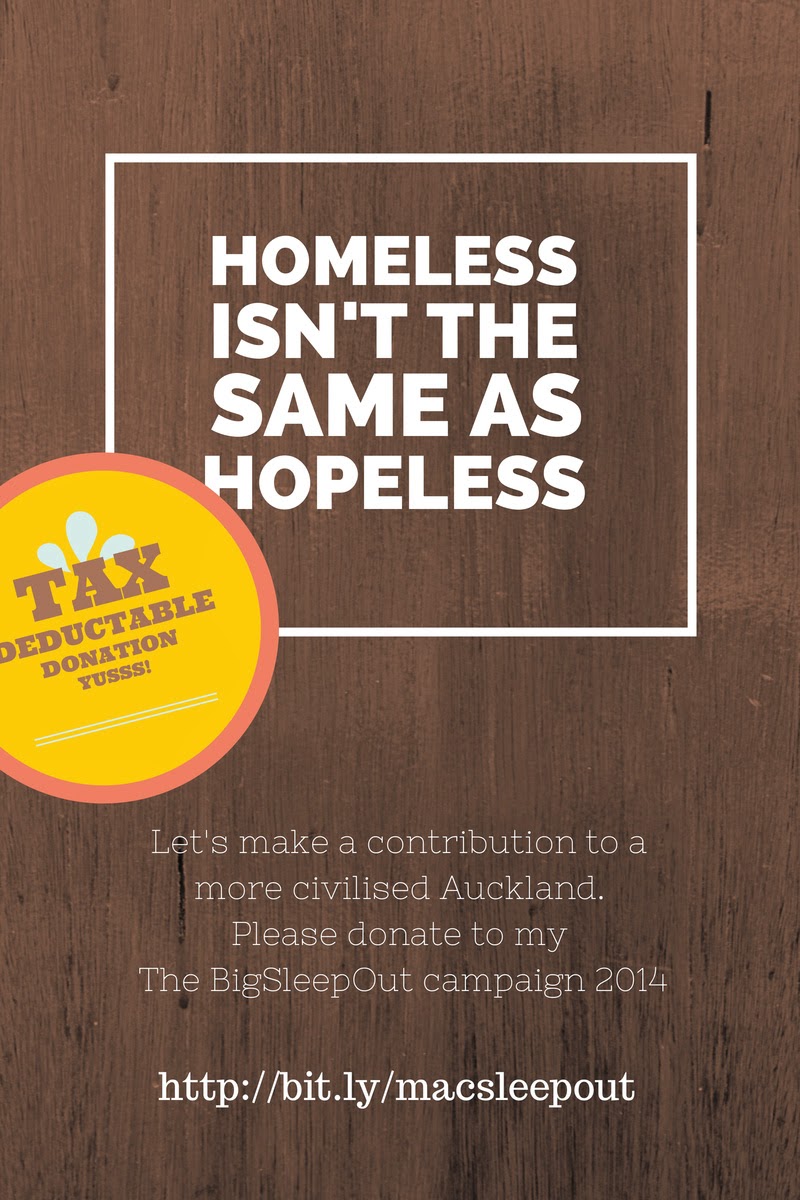
The mayor of Auckland loves the meme 'a more livable city'. I do to - but I think everyone who lives here should be able to enjoy not only the natural beauty and the hum of a modern place - but also somewhere to call home. I'm not saying everyone should have a place on the northern slopes of Herne Bay just because they want one. But I do think everyone who needs and wants shelter at night or a modest place to call their own and feel safe and warm should have access to that.
That's what the Lifewise trust do. They find ways of getting the resources available to the people who need them most. That's part of the crazy that is homelessness. Often services are available but the people they are for don't have access. Some don't know how. Others have bias against the agencies that can and do help - like police or CYFs.
This year the campaign's focus is youth on the street. They are more vulnerable. very young children are on the street because it sometimes seems preferable to home - their own or a foster home. But it makes them vulnerable to predation, illness and the obvious risks associated with life on the street.
It's not hopeless. The Lifewise Trust have been chipping away at the problem and make real gains. Even one kid given a chance to reintegrate into the mainstream makes it worth the effort.
I'm participating in The BigSleepOut again this year. The event raises awareness and, importantly, money to help make the problem go away. I'm asking you for help - You can make your donation here - think of it as a contribution to creating a more liveable city.
Donations may qualify for tax deductions.
Collection of money is independent and securely managed by GiveALittle - a Telecom Trust project.
The LifeWise Trust
This year the campaign's focus is youth on the street. They are more vulnerable. very young children are on the street because it sometimes seems preferable to home - their own or a foster home. But it makes them vulnerable to predation, illness and the obvious risks associated with life on the street.
It's not hopeless. The Lifewise Trust have been chipping away at the problem and make real gains. Even one kid given a chance to reintegrate into the mainstream makes it worth the effort.
I'm participating in The BigSleepOut again this year. The event raises awareness and, importantly, money to help make the problem go away. I'm asking you for help - You can make your donation here - think of it as a contribution to creating a more liveable city.
Donations may qualify for tax deductions.
Collection of money is independent and securely managed by GiveALittle - a Telecom Trust project.
The LifeWise Trust
Comments
Post a Comment